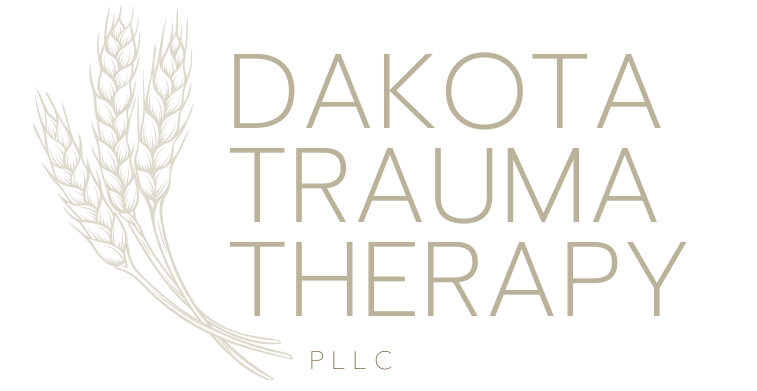Everyone faces fears at different stages of their life. Whether it’s the fear of the unknown, fear of failure, or even fear of success, these daunting feelings can act as significant barriers to achieving our full potential. This comprehensive guide delves into the depths of fear and examines practical strategies for overcoming it.
We’ll answer the most burning questions about fear, providing you with tools and insights to understand and conquer your fears. Join us on this revealing journey, and learn how to transform your fear into a force that propels you towards growth, courage, and personal triumph.
What are the common causes of fear?
Fear is a natural and essential part of being human, acting as a protective mechanism against potential threats. However, it often arises from direct threats and psychological and environmental factors. Understanding these common causes can empower individuals to effectively address and overcome their fears.
- Biological factors: Innate fears, such as fear of loud noises or heights, are considered evolutionary in nature, helping to keep our ancestors safe from harm.
- Learned fears: Personal experiences, such as a traumatic event, can teach us to be fearful in similar situations.
- Cultural and societal influences: Media, social norms, and cultural stories contribute to fears by often exaggerating risks or creating unrealistic scenarios that seem threatening.
- Uncertainty and lack of control: Fears commonly stem from situations where the outcome is uncertain or where there is a perceived lack of control over the situation.
- Stress: Chronic stress can heighten sensitivity to fear-inducing stimuli, making everyday situations feel more threatening.
- Imagination: Sometimes, the mere anticipation of a negative event, even if it’s unlikely to occur, can cause significant fear.
Acknowledging the root causes of fear is the first step in developing personalized strategies to combat it. By recognizing that fear is often a product of our minds reacting to both real and perceived threats, individuals can disentangle themselves from unnecessary fear.
How does fear affect the body and mind?
Fear is not just an emotional response; it profoundly impacts the body and mind. Understanding this psychophysiological connection is critical for managing fear effectively.
When you experience fear, your body undergoes a series of changes, known as the “fight or flight” response, which prepares you to confront or flee the perceived threat. Here are some ways fear manifests:
- Physical effects:
- Increased heart rate and blood pressure supply muscles with more oxygen for action.
- Rapid breathing to increase oxygen intake.
- Release of adrenaline and cortisol, heightening alertness and energy levels.
- Tensed muscles, preparing the body to act swiftly.
- Mental effects:
- Heightened senses, such as sharper vision and more acute hearing, allow for better detection of threats.
- Difficulty concentrating on anything other than the immediate threat.
- Disruption of cognitive functions, making it harder to make rational decisions.
- Emotional reactions such as anger, aggression, or complete shutdown.
However, when fear becomes chronic or is triggered too easily, it can lead to adverse long-term effects such as anxiety disorders, depression, and other health issues. Learning techniques to soothe immediate bodily responses and reframe fearful thoughts is central to regaining control over your body and mind.
Can facing your fears actually help overcome them?
Confronting what scares you might seem counterintuitive, but it is a fundamental technique in numerous therapeutic methods for overcoming fear, known as exposure therapy. This method is based on the principle of habituation, which is the process of becoming accustomed to stimuli over time.
Here’s why and how facing your fears can be beneficial:
- Desensitization: With repeated exposure, the fear response diminishes, making the situation less intimidating.
- Response Prevention: It prevents the avoidance behavior that reinforces fear, breaking the cycle of fear and escape.
- Confidence Building: Successfully facing fears builds confidence and reduces feelings of helplessness.
- Cognitive Restructuring: It provides opportunities for individuals to challenge and change their thought patterns surrounding the feared object or situation.
To face your fears effectively, consider these steps:
- Start Small: Begin with a less intimidating aspect of your fear.
- Gradual Exposure: Slowly increase the intensity of the exposure as you become more comfortable.
- Consistency: Regularly practice exposure to ensure progress.
- Support System: Have a friend or therapist present for reassurance during the process.
It’s essential to approach this strategy with patience, as it takes time to see significant changes and to ensure that the fear does not become overwhelming.
What are some effective strategies for managing fear?
Managing fear is a multifaceted approach that involves both psychological and practical strategies. Here are some insights into how to keep your fears in check:
Psychological Strategies:
- Cognitive-Behavioral Techniques: Challenge and replace negative thought patterns with more realistic and positive ones.
- Visualization: Picture yourself successfully overcoming your fear to create a mental image of success.
- Relaxation Techniques: Deep breathing, progressive muscle relaxation, and mindfulness can help to lower the physiological symptoms of fear.
Practical Strategies:
- Preparation: Gain knowledge about what you’re afraid of. The more you understand, the less intimidating it may seem.
- Setting Small Goals: Break down the fearful situation into manageable steps.
- Self-Care: Ensure you’re well-rested, eating healthily, and engaging in regular physical activity to keep your body and mind in optimal condition.
Tailoring these strategies to fit your needs is vital, as different fears may require different approaches. Consistent application and adjusting tactics in response to progress or setbacks are essential to effective fear management.
How can I differentiate between irrational and rational fears?
Discerning the differences between rational and irrational fears is essential in determining how to address them. Here’s how you can identify each:
Rational Fears:
- Based on Reality: They have a foundation in real, immediate dangers.
- Appropriate Proportion: The level of fear is relative to the actual level of threat.
- Response to Clear Threat: A direct object or situation is causing the fear that can be identified.
Irrational Fears:
- Not Based on Immediate Danger: The fear may be rooted in past experiences or anticipated future events, not in present reality.
- Excessive Reaction: The fear is disproportionate to the actual risk involved.
- Generalized Anxiety: The fear may not have a specific focus and can be vague or difficult to pinpoint.
Once you categorize your fears, applying the appropriate coping mechanisms is easier. Rational fears are often handled best with direct action. In contrast, irrational fears may require psychological techniques to reframe thoughts and responses.
What role does mindfulness play in overcoming fear?
Mindfulness is the practice of being fully present in the moment. It has proven to be a powerful tool in managing fear. When practiced regularly, mindfulness can:
- Reduce Stress: It lowers the overall stress levels, making fears less intense.
- Increase Emotional Regulation: This helps you observe your fears without immediate reaction, allowing for better control over your emotions.
- Improve Focus: It trains the mind to stay focused on the present rather than worrying about future what-ifs or past events.
Practicing mindfulness can include:
- Mindful Breathing: Concentrating on the breath to anchor yourself in the present.
- Body Scan Meditation: Noticing each body part and any sensations it may be experiencing.
- Mindful Observation: Observing thoughts and fears without judgment.
Incorporating mindfulness into daily routines can gradually diminish the power that fear has over the mind and body.
How can therapy or counseling help with fear?
Therapy or counseling can be instrumental in overcoming fear by providing:
- Professional Guidance: A therapist brings expertise in evidence-based techniques tailored to your specific fears.
- Safe Environment: Therapy offers a confidential and secure space to explore fears without judgment.
- Coping Strategies: Counseling can introduce new coping mechanisms and help refine existing ones.
Therapeutic methods such as Cognitive-Behavioral Therapy (CBT), Exposure Therapy, and Acceptance and Commitment Therapy (ACT) are particularly effective for fear-related issues.
Are there any particular exercises or activities that help reduce fear?
Specific exercises and activities can be particularly beneficial in reducing fear, such as:
- Regular Exercise: Physical activity releases endorphins with mood-boosting and anxiety-reducing effects.
- Journaling: Writing down fears and their associated feelings can help understand and manage them.
- Art Therapy: Creative outlets like painting or drawing provide a non-verbal way to express and process emotions.
Engaging in these activities can offer immediate relief from fear and can also foster a long-term sense of well-being.
How can I support someone else who is dealing with fear?
Supporting someone with fear involves being empathic and taking action to help them cope, such as:
- Listening: Offer a non-judgmental ear and let them share their experiences.
- Encouragement: Reassure and motivate them to confront and work through their fears.
- Information: Provide resources that help them better understand and manage their fears.
By providing a supportive environment, you can help alleviate some of their distress and empower them to face their fears.
How do I maintain my progress in overcoming fear?
Maintaining progress in overcoming fear is crucial and can be achieved through:
- Continued Practice: Keep using the strategies that have helped you manage fear.
- Progress Tracking: Maintain a journal or log to monitor improvements and setbacks.
- Seeking Support: Stay connected with friends, family, or support groups who understand your journey.
Remaining vigilant and dedicated to self-improvement is vital for sustaining progress against fear.
Overcoming fear is a courageous journey that can dramatically enhance your quality of life. Remember, fears are common, and with the insights and strategies discussed in this guide, you can confront and conquer them.
Take these steps mindfully, respect your individual process, and celebrate each victory, no matter how small. If you want to break free from the chains of fear and soar to new heights of personal achievement, start implementing these practices today. Your path to a more fearless and fulfilling life awaits you.

